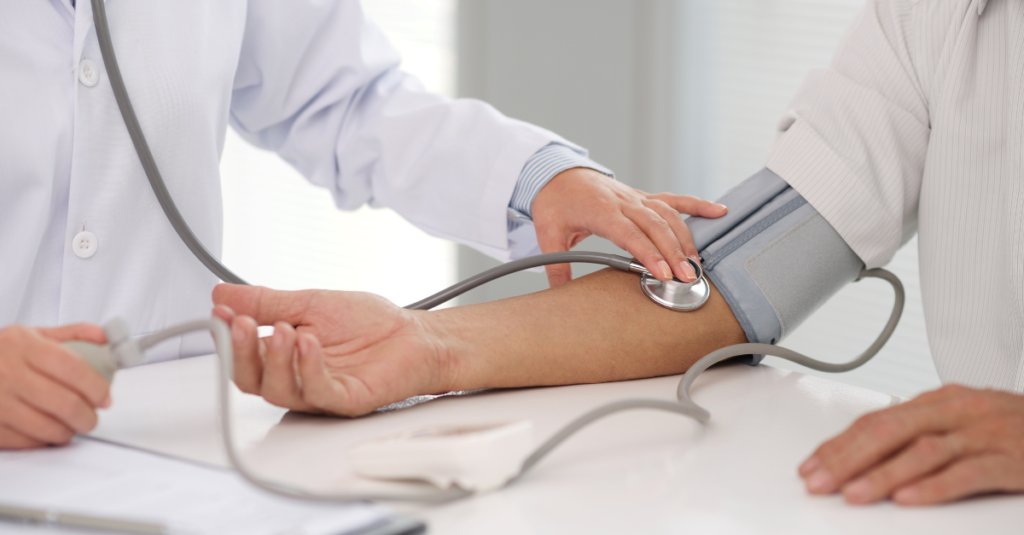In today’s fast-paced world, where advancements in medicine are rapidly evolving, one of the most effective tools in modern healthcare remains surprisingly simple: the annual health screening. These routine check-ups are more than just a yearly obligation; they are vital to proactive healthcare. Regular health screenings serve as the first line of defense in detecting potential health issues before they become serious.
By catching diseases in their early stages, these screenings significantly increase the chances of successful treatment and management, directly contributing to a longer, healthier life. In essence, annual health screenings are not just about monitoring your current health status—they are a crucial investment in your future well-being and longevity.
This article aims to shed light on the vital role that annual health screenings play in maintaining and enhancing long-term health. By educating readers on how these routine check-ups can detect the early signs of various diseases, we aim to underscore their importance in preventing serious health complications down the line.
Through early detection, individuals have the opportunity to address potential health issues before they escalate, leading to more effective treatments and better health outcomes. Ultimately, this article seeks to empower readers with the knowledge that regular health screenings are not just a precautionary measure but a proactive approach to ensuring a longer, healthier life.
The Importance of Early Detection

Explanation of Early Detection
Early detection refers to the process of identifying a disease or condition in its initial stages, often before symptoms appear or when they are still mild. In health screenings, early detection means using various diagnostic tests and assessments to uncover potential health issues before they develop into more serious and harder-to-treat conditions.
This proactive approach allows healthcare providers to intervene sooner, offering patients a better chance of managing or reversing certain diseases’ progression. Early detection is a cornerstone of preventive healthcare, serving as a critical step in safeguarding long-term health and well-being.
Benefits of Early Detection
The benefits of early detection through regular health screenings are profound, particularly when it comes to managing life-threatening diseases such as cancer, heart disease, and diabetes. For instance, early cancer detection can often lead to less invasive and more effective treatments, significantly improving survival rates.
According to the American Cancer Society, the five-year survival rate for breast cancer detected early in a localized stage is 99%, compared to just 27% when the cancer has spread to distant organs. Similarly, early identification of heart disease through routine screenings can prevent heart attacks and strokes by enabling timely lifestyle changes or interventions like medication. For diabetes, early detection allows for better blood sugar management, reducing the risk of severe complications such as kidney failure or vision loss.
Case studies and statistics consistently show that individuals who undergo regular health screenings have better health outcomes and longer life expectancies than those who do not. For example, a study published in the Journal of the American Medical Association found that early detection and treatment of hypertension significantly reduced the risk of cardiovascular events and mortality. These findings underscore the crucial role that early detection plays in enhancing treatment efficacy, improving quality of life, and, ultimately, extending life expectancy.
Types of Annual Health Screenings

Common Screenings for All Ages
Certain health screenings are essential for individuals of all ages, serving as foundational tools in preventing chronic diseases and maintaining overall health. Among the most critical are blood pressure, cholesterol levels, and blood glucose tests.
Blood Pressure Screening: High blood pressure, often called the “silent killer,” can lead to severe health issues such as heart disease, stroke, and kidney failure if left untreated. Regular monitoring allows for early intervention, helping to manage or prevent hypertension and its associated risks.
Cholesterol Levels: Elevated cholesterol levels can accumulate in the arteries, leading to atherosclerosis, heart attacks, and strokes. Regular cholesterol screenings enable individuals to make necessary lifestyle changes or start medications to lower their risk of cardiovascular disease.
Blood Glucose Tests: These tests are vital for detecting prediabetes and diabetes, conditions that, if unmanaged, can cause serious complications like nerve damage, vision loss, and cardiovascular issues. Early detection through routine blood glucose testing allows for better diet, exercise, and medication management, significantly reducing the risk of severe outcomes.
These screenings form the backbone of preventive healthcare, helping to identify and manage conditions that could otherwise go unnoticed until they cause significant harm.
Age-Specific Screenings
As individuals age, the risk of certain diseases increases, necessitating more specialized screenings to detect these conditions early.
Mammograms: For women, regular mammograms starting around age 40 or as recommended by a healthcare provider are crucial for the early detection of breast cancer. Early-stage breast cancer often has no symptoms, making these screenings vital for identifying the disease when it is most treatable.
Colonoscopies: Colonoscopies are recommended to screen for colorectal cancer beginning at age 45 or 50, depending on individual risk factors. This procedure can detect precancerous polyps that can be removed before they develop into cancer, making it an essential tool for cancer prevention in aging adults.
Bone Density Tests: The risk of osteoporosis increases as people age, especially women after menopause. Bone density tests help assess bone strength and the risk of fractures, allowing for early intervention through diet, exercise, or medication to prevent bone loss and fractures.
These age-specific screenings are vital in managing the unique health risks that increase with age, ensuring that conditions are caught early when they are most manageable.
Specialized Screenings
In addition to common and age-specific screenings, some individuals may require specialized screenings based on their personal or family medical history. These screenings are tailored to detect specific conditions for which they may be at higher risk due to genetic factors or other health considerations.
Genetic Testing: Genetic testing can provide valuable information about risk for individuals with a family history of certain cancers or genetic disorders. This allows for personalized prevention strategies, such as increased surveillance or preventive measures.
Skin Cancer Checks: Those with a history of skin cancer, significant sun exposure, or numerous moles may benefit from regular skin cancer screenings. These checks can detect early signs of skin cancer, including melanoma, which is most treatable when caught early.
Specialized screenings ensure that individuals receive the most appropriate care based on their unique health risks, allowing for early detection and prevention tailored to their specific needs.
How Regular Screenings Contribute to Longevity

Prevention and Management of Chronic Diseases
Regular health screenings play a critical role in the prevention and management of chronic diseases, which are among the leading causes of death and disability worldwide. By identifying risk factors and early signs of conditions such as hypertension, diabetes, and cardiovascular disease, screenings allow for timely interventions that can halt or slow the progression of these diseases. For example, detecting high blood pressure early enables healthcare providers to recommend lifestyle changes or prescribe medications that prevent the development of more severe complications like heart attacks or strokes.
Similarly, early identification of elevated blood glucose levels can lead to interventions that prevent the onset of type 2 diabetes or mitigate its effects, reducing the likelihood of severe complications such as kidney disease or neuropathy. Regular screenings enable individuals to manage their health more effectively, leading to better outcomes and a longer, healthier life.
Reduction of Healthcare Costs
Early detection and prevention through regular health screenings improve health outcomes and significantly reduce long-term healthcare costs. When diseases are caught in their early stages, they are often easier and less expensive to treat. For instance, treating early-stage cancer typically involves less aggressive and costly treatments compared to managing advanced cancer, which may require surgery, chemotherapy, or other intensive interventions.
Moreover, screenings can reduce the need for more expensive treatments, hospitalizations, and long-term care by preventing the progression of chronic conditions through early detection. This cost-saving benefit extends to individuals and the broader healthcare system, as preventing disease complications reduces the overall burden on healthcare resources.
Enhancing Quality of Life
Staying on top of one’s health through regular screenings contributes significantly to a higher quality of life, particularly in later years. Early detection and management of health issues allow individuals to maintain their independence, engage in daily activities, and enjoy life with fewer limitations caused by illness. For example, early treatment of osteoporosis can prevent debilitating fractures, enabling older adults to remain active and mobile.
Similarly, managing chronic conditions like diabetes through regular monitoring can prevent complications that could otherwise lead to a decline in physical and mental well-being. Regular screenings help individuals live healthier, more fulfilling lives well into their later years by ensuring that health issues are addressed before they become severe.
Overcoming Barriers to Regular Health Screenings

Common Barriers
Despite the well-documented benefits of regular health screenings, many individuals avoid them due to various barriers. One of the most common reasons is fear—fear of receiving bad news, fear of the screening procedures themselves, or fear of potential side effects from follow-up treatments. This anxiety can lead to procrastination or outright avoidance of necessary screenings.
Another significant barrier is cost. Many people are concerned about the expenses associated with health screenings, especially if they do not have adequate health insurance. The perception that screenings are costly and may lead to further expensive medical care can deter individuals from seeking these preventive measures.
Lack of awareness is also a major barrier. Some individuals may not fully understand the importance of regular screenings or may be unaware of which screenings are recommended for their age and health status. Additionally, logistical challenges such as lack of time, transportation, or access to healthcare facilities can also prevent people from getting screened regularly.
Solutions and Encouragement
It’s important to provide practical solutions and encouragement to overcome these barriers. For those facing fear, education is key. Providing clear, understandable information about what to expect during screenings and emphasizing the benefits of early detection can help alleviate anxiety. Encouraging open conversations with healthcare providers about concerns can also reduce fear and build trust.
For cost concerns, it’s crucial to highlight available resources. Many communities offer free or low-cost screening programs, especially for individuals without insurance. Patients should be informed about these options and preventive care services covered by insurance plans under the Affordable Care Act. Additionally, some healthcare facilities offer payment plans or sliding-scale fees based on income, making screenings more accessible.
To address the lack of awareness, healthcare providers, community organizations, and public health campaigns can play a vital role in disseminating the importance of regular screenings. Social media, workshops, and informational pamphlets can effectively reach diverse populations. Employers can also support screening efforts by offering wellness programs that include health screenings as part of their employee benefits.
Role of Healthcare Providers
Healthcare providers are pivotal in encouraging regular screenings and educating patients about their importance. They are often the first point of contact for patients and can significantly influence their decisions about preventive care. By consistently recommending and discussing the appropriate screenings during routine visits, providers can emphasize the necessity of these tests.
Providers should also take the time to educate patients about what each screening entails, why it is recommended, and potential outcomes. This patient-centered approach helps to demystify the process and reduces fear. Furthermore, providers can assist patients in overcoming logistical barriers by helping them schedule appointments, providing referrals to affordable screening services, and following up to ensure that screenings are completed.
Ultimately, healthcare providers have a responsibility to create a supportive environment where patients feel empowered to take charge of their health through regular screenings. By doing so, they help to ensure that more individuals benefit from early detection and the improved health outcomes it offers.
Recap of Key Points
Annual health screenings are an essential component of modern healthcare, playing a pivotal role in the early detection of diseases and the prevention of chronic conditions. By identifying potential health issues before they become severe, regular screenings enable more effective treatment options, reduce healthcare costs, and contribute to a higher quality of life. These proactive measures are key to ensuring long-term health and longevity, whether through common screenings like blood pressure and cholesterol tests, age-specific evaluations such as mammograms and colonoscopies, or specialized assessments based on individual risk factors.
Call to Action
Now is the time to take control of your health. If you haven’t already, schedule your next health screening today. Whether it’s a routine check-up or a specific test recommended for your age and health status, these screenings are vital to safeguarding your future. Don’t wait for symptoms to appear—be proactive and prioritize your health.
Final Thought
Remember, annual health screenings are not just a routine but a powerful tool for maintaining a long and healthy life. By staying informed and up-to-date with your screenings, you are investing in your well-being, ensuring you can enjoy life’s moments with vitality and peace of mind. Take the first step today and commit to regular health screenings as a cornerstone of your personal healthcare plan.

